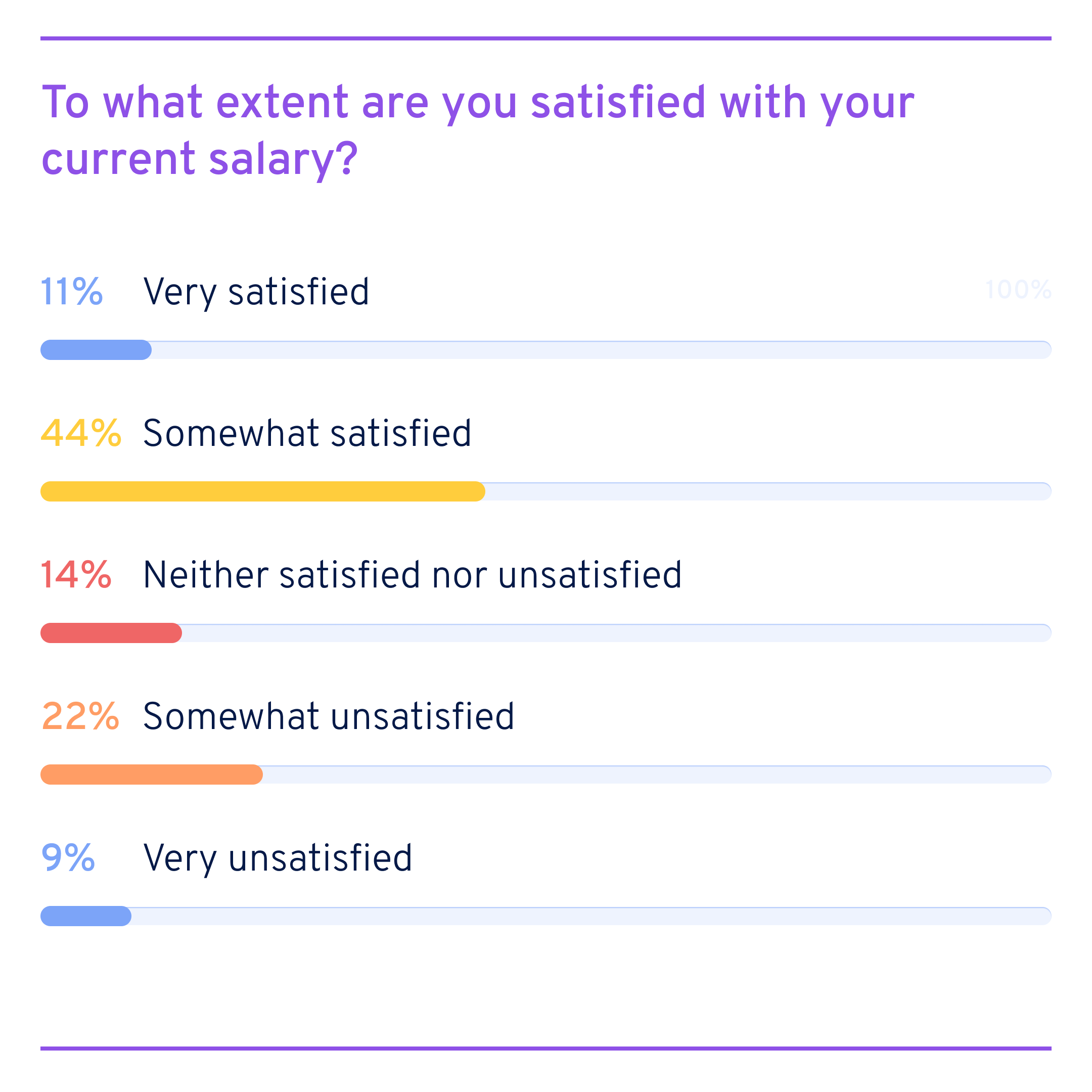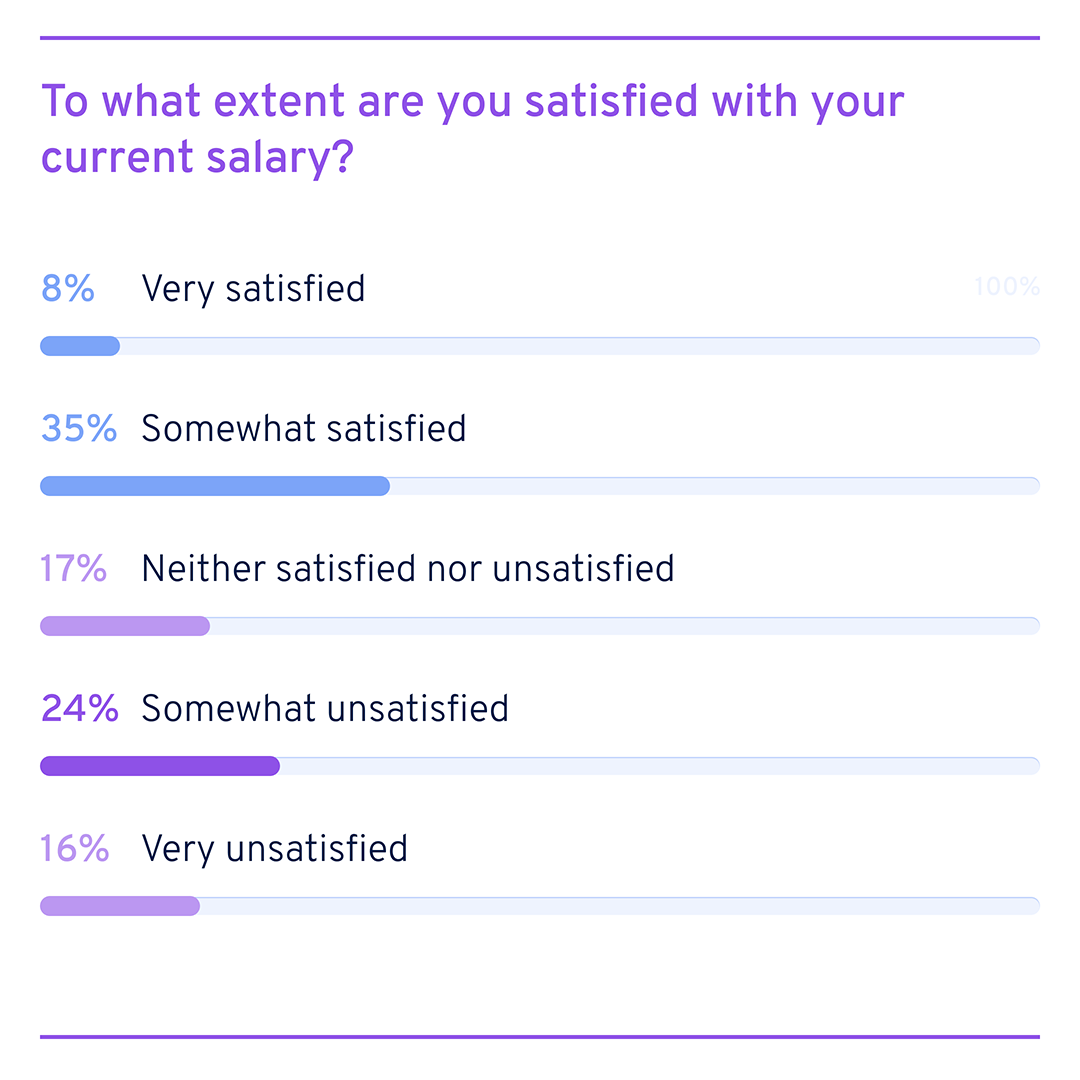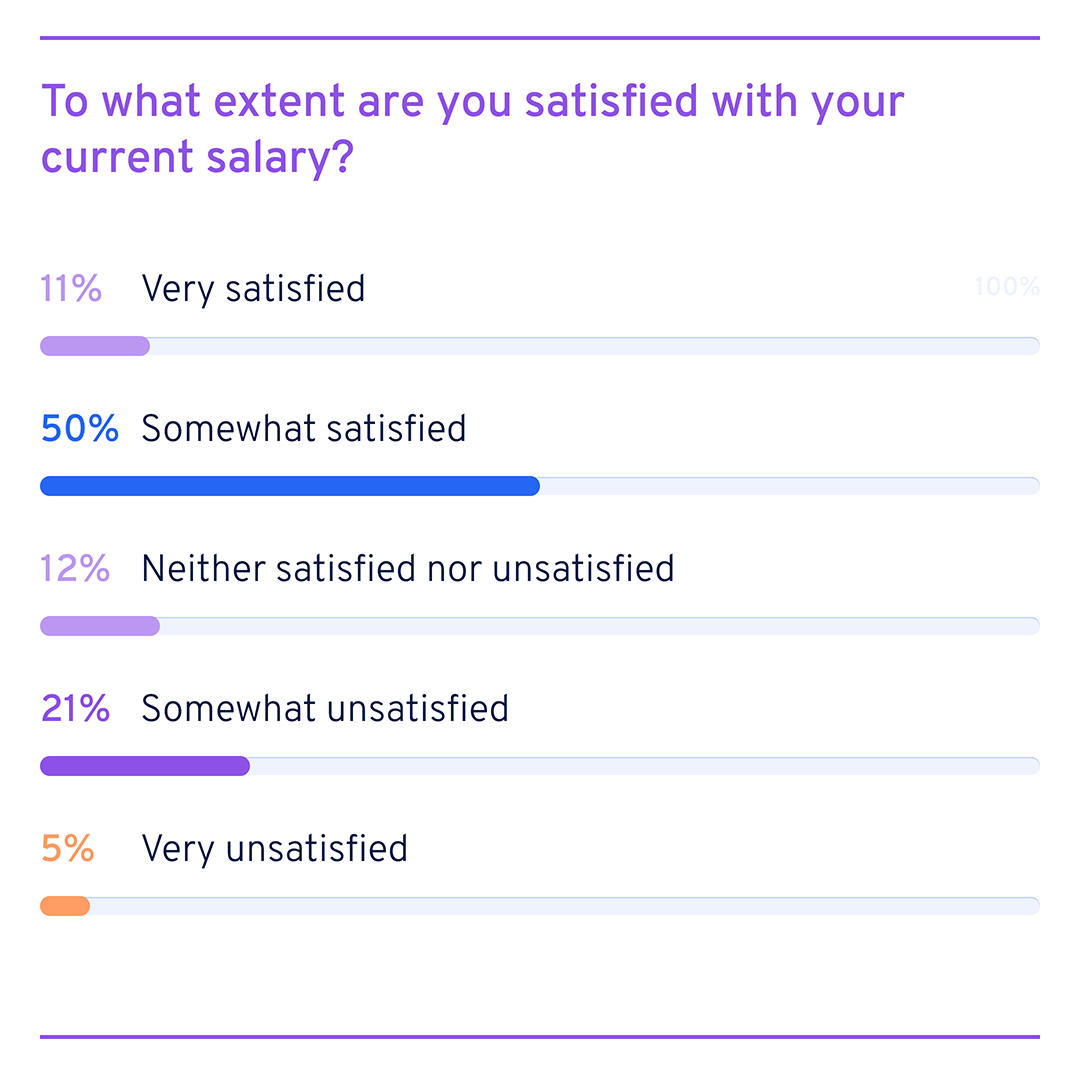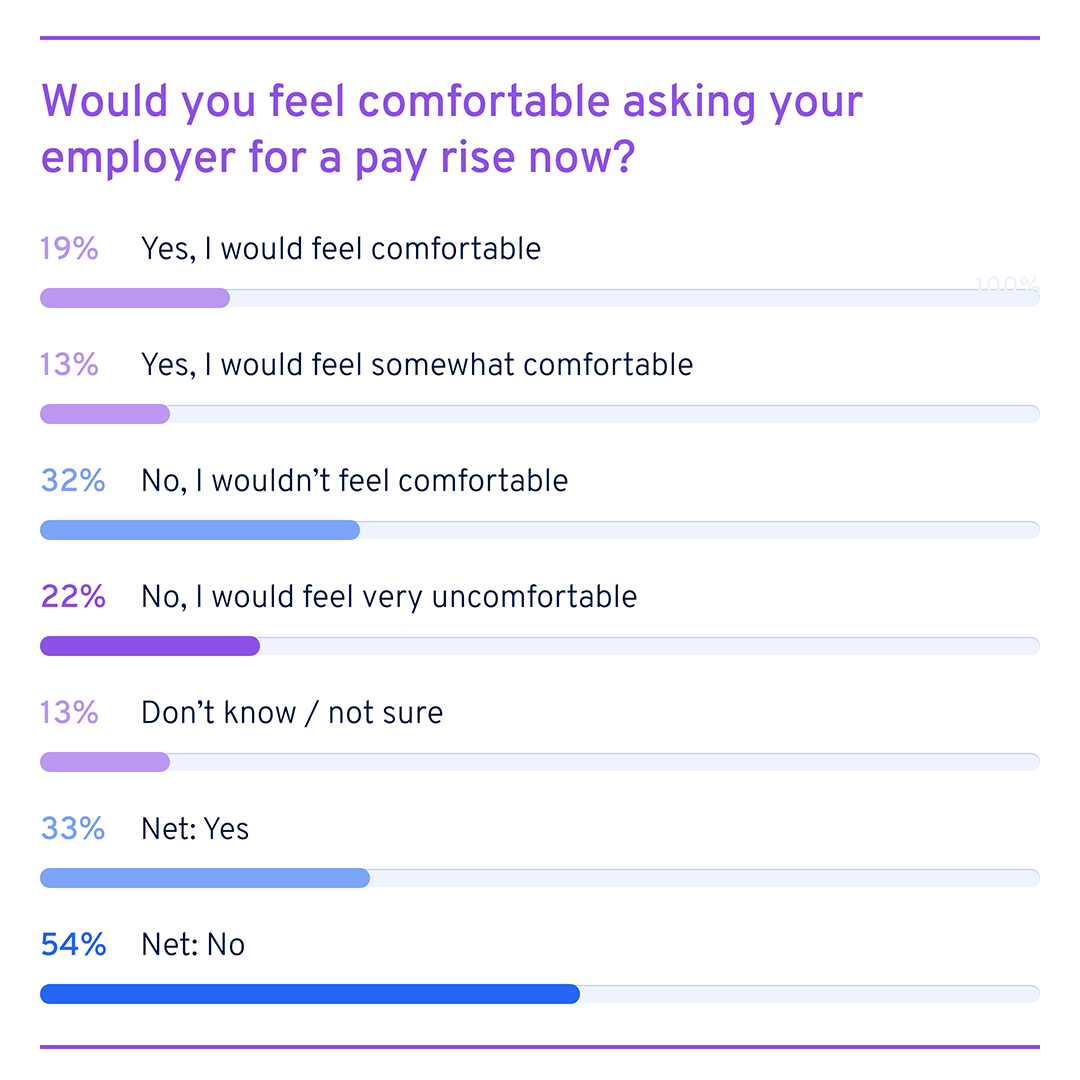How Satisfied Are UK L&D Professionals With Their Salaries?
In chapter one, we offered an overview of the hard numbers, showing what UK L&D professionals are really getting in their paycheques. But how do they feel about it in reality?
Despite over a quarter of respondents not having had a pay rise in the last 12 months, we found that over half of the respondents we surveyed are satisfied with their current salary.

When asked “to what extent are you satisfied with your current salary,” 11% said ‘very satisfied’, 44% said ‘satisfied’, 14% said ‘neither satisfied nor unsatisfied’, 22% said ‘somewhat satisfied’, and 9% said ‘very unsatisfied’.
Despite over a quarter of respondents not having had a pay rise in the last 12 months, we found that over half of the respondents we surveyed are satisfied with their current salary.
Unsurprisingly, these results around salary satisfaction correlate with whether people have had a pay rise in the last 12 months. 57% of respondents who answered neutral or unsatisfied to the salary satisfaction question had not had a pay rise in the last 12 months. On the other hand, 61% of respondents who had a 1-3% pay rise were satisfied or very satisfied with their salary.


Given trends in L&D professionals leaving their positions in search of better opportunities as part of the Great Resignation, these results create even more urgency for organisational leadership to consider increases in pay for their L&D teams.
Remuneration satisfaction thresholds
On average, we found that 55% of respondents were happy with their salary and 31% of respondents were unsatisfied with their salary.
We found that respondents earning under £29,999 were the least satisfied with their salary. 43% of people in the £20,000 and under group were unsatisfied and just under half of the respondents in the £20,000-£29,999 salary range group (47%) were unsatisfied.
In all the other salary range groups, there were more respondents who were satisfied with their salaries than not. This suggests that on the whole, L&D professionals are happy with their current salaries.
Popping the question: who is asking for a pay rise?
So, is this a correlation between asking for a pay rise and the extent to which L&D professionals are satisfied with their salaries?

On the whole, we found that over half of respondents (54%) were not comfortable asking their employer for a pay rise. We also found that of those who were very satisfied with their salary, only 20% would feel comfortable asking for increased pay.
In comparison, 32% of respondents who are very unsatisfied with their salary would feel comfortable asking for a pay rise.
On the whole, we found that over half of respondents (54%) were not comfortable asking their employer for a pay rise.
Are people more confident asking for a pay rise the more experience they have?
Our survey reports that L&D professionals with 1-3 experience are more likely to feel uncomfortable asking for a pay rise than groups with more years of experience. Interestingly, 60% said they wouldn’t feel comfortable. This percentage decreased to 55% for people with 6-10 years of experience.
This suggests that people with less experience perhaps think they still have a lot to learn in their roles and this makes them less comfortable asking for a pay rise. In comparison, someone with more experience and demonstrable impact under their belt may feel more comfortable asking for a pay rise.
But this isn’t just about individual experience or performance. Departments that have difficulty proving their impact as a team and aligning with organisational goals may have a knock-on effect on how comfortable people feel about asking for a salary increase.
Departments that have difficulty proving their impact as a team and aligning with organisational goals may have a knock-on effect on how comfortable people feel about asking for a salary increase.
Not satisfied with your salary? Here are four ways to help you navigate the pay rise you deserve
- Demonstrate outcomes, not output: Set objectives and key results, make time, and shine a light on yourself to show your accomplishments.
- Do your research to get buy-in from stakeholders: Shift the narrative from what you want (a pay rise) to why your work is important (business success).
- Lay the foundation buy helping yourself grow: As an individual, if you see a lack of opportunities, you can take the initiative and create your own learning path.
- Be confident in the numbers: Knowing your worth is a huge part of negotiating a pay rise and can give you the confidence you need to advocate for yourself.
Want even more tips on how to navigate the salary conversation with your manager? Download our salary negotiation top tips and ensure you’ve got all basis covered.
Now, let's take a look at the challenges L&D professionals face in relation to career advancement.

Are You Being Paid What You're Worth?
By downloading, you agree to our privacy policy.


